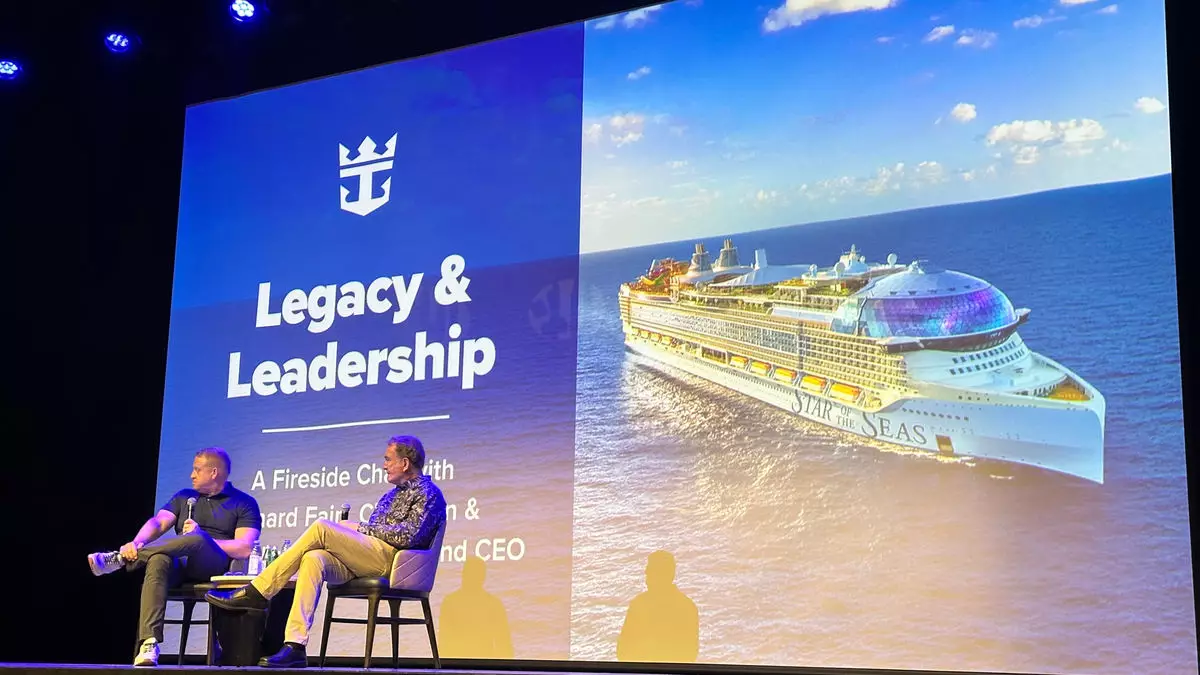In the landscape of high-stakes corporate leadership, one of the most compelling traits is the capacity for self-criticism. Unlike superficial arrogance, genuine leadership requires an honest assessment of one’s performance—an acknowledgment of shortcomings and an openness to improvement. The exchange between Royal Caribbean Group CEO Jason Liberty and the legendary Richard Fain exemplifies this principle. When Liberty earnestly inquired, “How am I doing?” Fain’s candid response—that it was “four years too late”—serves as a stark reminder that true leaders continually calibrate their compass, often long after they should. This dynamic underscores a sobering truth: self-criticism fuels growth, innovation, and resilience. Leaders who avoid or shy away from uncomfortable truths risk stagnation, whereas those who embrace them foster cultures of accountability and continuous evolution.
What makes this exchange even more compelling is its context. The setting was a celebratory cruise preview, yet behind the jovial banter lay a profound emphasis on reflection. Effective leaders, Fain’s words imply, don’t rest on laurels; they relentlessly question, refine, and adapt. Liberty’s willingness to seek honest feedback, even if delayed, indicates a healthy humility that many modern executives lack. It is this humility that fosters trust within teams and opens the door for authentic development. Ultimately, embracing constructive critique is not a sign of weakness—it’s a foundational element of enduring leadership. As Fain’s pointed remark suggests, to truly excel, one must be willing to confront their shortcomings and act upon them.
The Power of Culture and People in Sustaining Success
Royal Caribbean’s ascent is no accident; it is rooted in a deeply ingrained culture that prioritizes its people—an insight Fain tirelessly champions. When he attributes the company’s enduring success to “the people,” he underscores an often overlooked truth: organizations are, at their core, people-driven entities. Culture is the invisible thread that weaves these individuals into a cohesive, purpose-driven fabric. Without it, any strategy or innovation risks fraying at the edges. Fain’s sentiment highlights that leadership isn’t about shortcut wins or shiny attractions but about nurturing an environment where talent can flourish, where ambition is aligned with shared values.
The CEO’s emphasis on cultivating a culture that invites leadership itself reveals a nuanced understanding: great organizations are democratized in their leadership model. They empower individuals at every level, encouraging ownership and initiative. This approach fosters a sense of pride and ownership in the collective journey—precisely the “flowers” Fain mentions seeing bloom. In today’s competitive landscape, companies that fail to nurture their employees and foster an empowering culture will eventually fall behind. Success, in the long term, hinges on building trust and loyalty among personnel—factors that no quick innovation can replace.
Innovation as a Cohesive Whole, Not Mere Spectacle
During the dialogue, Fain underscores that innovation extends beyond singular ‘wow’ moments. The failed attempt at a giant blimp on Oasis of the Seas serves as an illustrative anecdote—a reminder that not every bright idea becomes reality. Yet, those experiences contribute to a broader culture of experimentation and learning. Success, Fain argues, depends on the seamless integration of ideas into a cohesive whole. This perspective challenges the common misconception that innovation is solely about flashy features or dramatic stunts. Instead, it is about creating experiences that feel natural, engaging, and authentic.
The lesson here is that memorable innovations are not just about novelty; they are about thoughtful integration into the overall experience. Building a cruise that offers more immersive, shareable moments reflects this holistic approach. Liberty’s recognition that future travelers seek personalized, experiential adventures points to a strategic shift away from traditional touring models. It’s not enough to continue with the old script; the industry must adapt by offering deeper, more meaningful moments that resonate emotionally with guests. This shift reflects an understanding that genuine innovation is rooted in a deep comprehension of customer desires—a mosaic of small, deliberate improvements rather than singular spectacle.
Leadership’s Role in Shaping the Cruise Industry’s Future
The dialogue between Liberty and Fain ends with an introspective challenge: “That’s the question you have to answer”—regarding what the future holds for vacations and cruising. It is ultimately the responsibility of visionary leaders to craft those answers, to envision paths that others may not yet see. Liberty’s focus on evolving guest experiences towards immersive, shareable moments signifies a proactive approach to future-proofing the industry. It’s a recognition that consumer preferences are shifting rapidly, influenced profoundly by technology, social media, and the desire for authentic, personal stories.
Fain’s response, emphasizing the importance of long-term thinking over short-term gains, resonates as a guiding principle for sustainable success. Industries that prioritize immediate results over strategic vision are doomed to follow fleeting fads. Instead, what is needed is an unwavering commitment to innovation grounded in a clear cultural identity. The future of cruising, as suggested, lies in creating interconnected and emotionally resonant experiences that make voyages not just trips, but memories etched into the fabric of travelers’ lives.
The candid praise from Fain—“Apparently, you’re doing a good job”—serves as a gentle yet firm endorsement of Liberty’s leadership approach. Yet, it is perhaps more telling that such affirmation comes from a figure with decades of experience. This mentorship-like dynamic encapsulates a vital truth: leadership is a continuous learning journey, enriched by shared histories, failures, and triumphs. As the industry looks ahead, it becomes clear that the path to success demands humility, a strong sense of purpose, and unwavering focus on cultivating the right culture. Only then can the cruise industry navigate the turbulent waters of change and chart a course to enduring growth.

